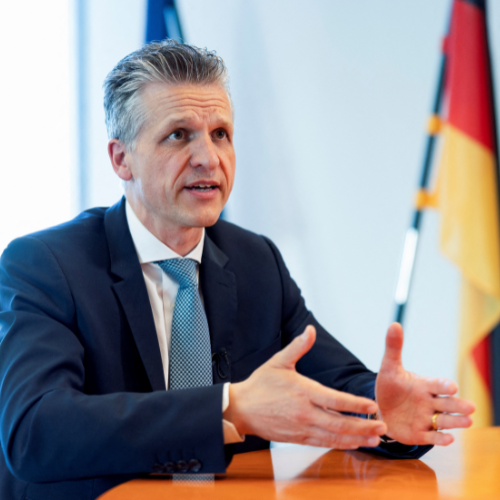Germany is asking the European Union (EU) to take much stronger steps to punish Russia for its ongoing war against Ukraine. Thorsten Frei, the chief of staff to Chancellor Friedrich Merz, has urged Europe to move “out of our comfort zone” and make decisions that will truly challenge Russia’s economy and leadership.
Speaking in a recent interview, Frei explained that the current measures against Russia are not enough. The EU has already placed many rounds of sanctions, but Russia continues its aggression. Frei said it’s time for the EU to go beyond the usual and adopt new, tougher penalties that could make a real difference—even if they are difficult for some European countries.
Gas, Uranium, and Frozen Assets on the Table
Frei outlined key ideas that Germany wants the EU to consider for its upcoming 18th package of sanctions. One major proposal is to ban the import of Russian gas and uranium into Europe. These are important resources that many EU countries depend on for heating homes and producing electricity. Cutting off these imports would seriously hurt Russia’s income, but it could also be uncomfortable for parts of Europe.
Another major suggestion involves frozen Russian state assets. These are financial resources and properties owned by the Russian government that have been blocked by EU countries. Frei believes it’s time to consider tapping into these frozen funds to apply more economic pressure on the Kremlin.
“These are exactly the kinds of measures that would really hurt Russia – and thus achieve the impact we actually intend with sanctions,” Frei said. He acknowledged that this path would not be easy but stressed that bold steps are necessary to change Russia’s behavior.
Peace Talks Failing as War Continues
Chancellor Friedrich Merz also commented on the situation, criticizing Russian President Vladimir Putin for pretending to seek peace while continuing military attacks. He pointed out that even while peace talks were being held in Istanbul last week, Russia’s strikes on Ukraine did not stop—in fact, they became more intense.
“He’s playing for time,” said Frei about Putin’s strategy. He believes Putin is only using negotiations as a delay tactic while still trying to win the war through force.
In response to the ongoing conflict, Germany is also reviewing its military support to Ukraine. The government has already set aside €7 billion in this year’s draft budget to assist Ukraine with weapons and supplies. However, Frei noted that Germany may increase that amount if needed.
On May 20, 2025, the EU officially approved its 17th sanctions package against Russia. This included new penalties related to the use of chemical weapons and Russia’s attempts to destabilize European countries through secretive or “hybrid” activities. Work on the next round of sanctions—the 18th package—has already begun, and Germany is leading the call for these to be far more impactful.
Germany’s message is clear: Europe must be willing to make hard choices if it wants to stop Russia’s aggression. With leaders like Thorsten Frei and Chancellor Merz speaking out strongly, pressure is building for the EU to respond with bold, uncomfortable, but necessary action.


